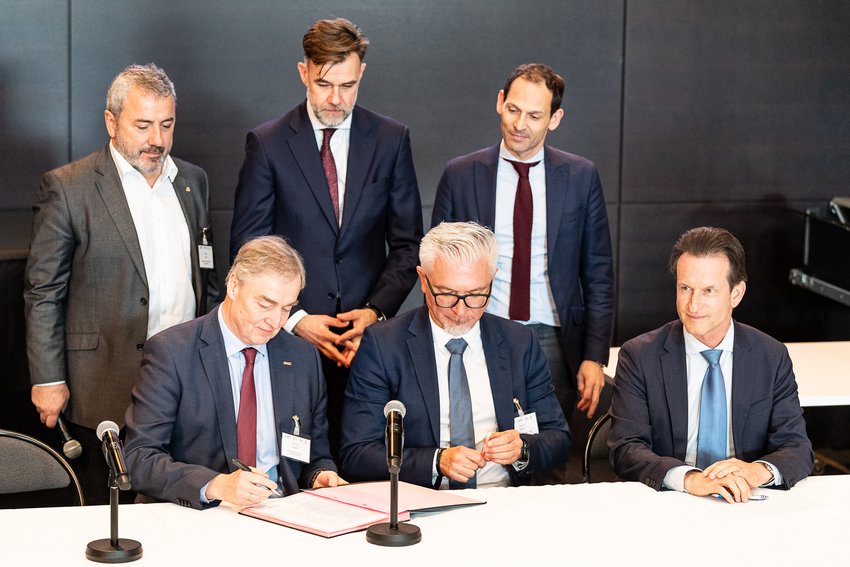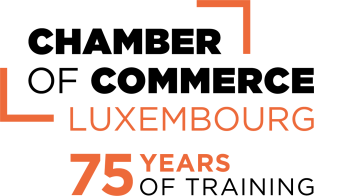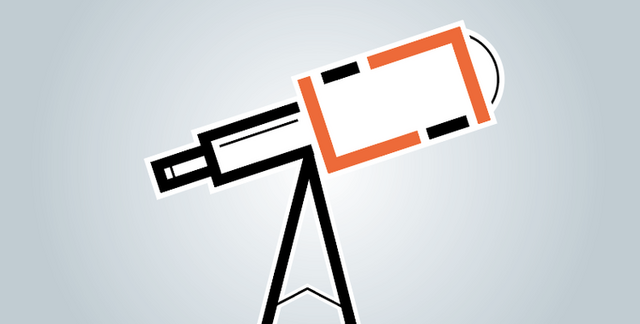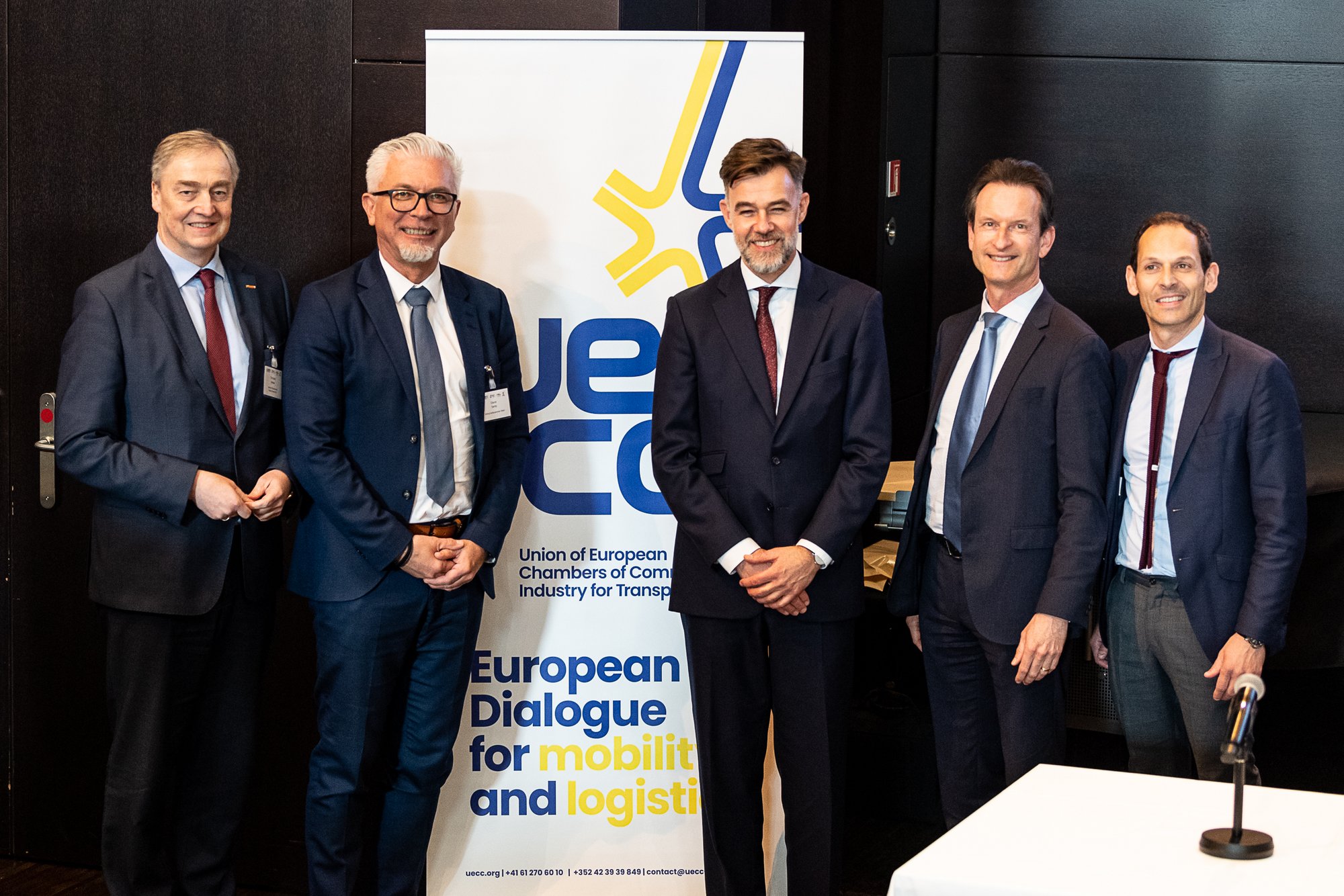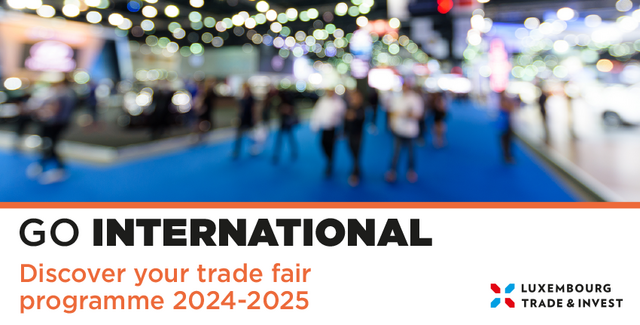
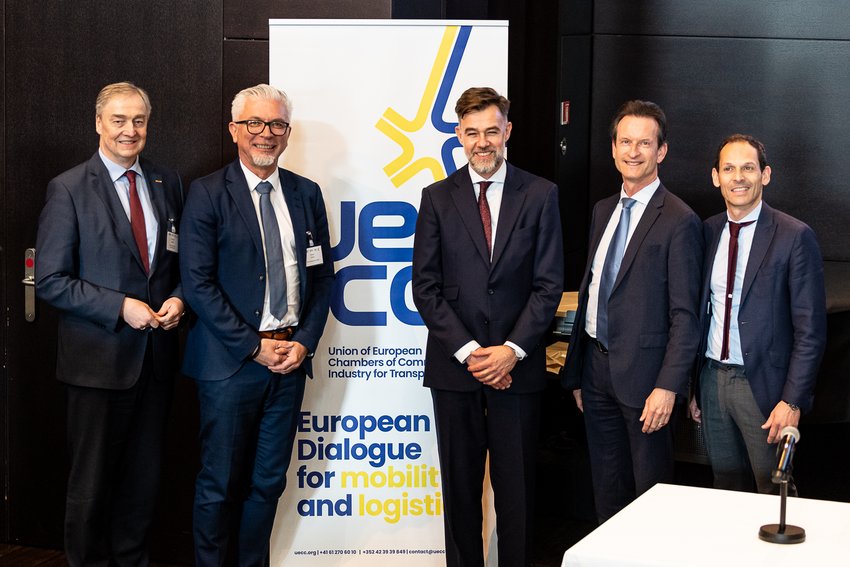
The European Association of Chambers of Commerce UECC, which specializes in transport policy, adopted a new resolution with 12 requests at its annual meeting on Friday, 21st April in Dudelange, Luxembourg. The UECC calls for the promotion of multimodal transport infrastructure and has elected a new president. The conference "Investments in Sustainable Transport Infrastructures" also gave a good insight into sustainable and multimodal projects in Europe.
At the General Assembly, the resolution “Strengthening multimodality and sustainable transport infrastructure in Europe!” was adopted, in which the UECC calls for the promotion of multimodality and a sustainable transport infrastructure in Europe. Politicians are asking a lot from the industry and its service providers, but there is still too little support and pressure for implementation.
Luxembourg’s Minister of the Economy Franz Fayot assured further support in Luxembourg and across borders for a sustainable transport policy and logistics. A "Luxembourg Green Valley" should rapidly promote the production and promotion of green energy - also for transport. The mayor of the city of Dudelange and Luxembourg MP Dan Biancalana, as patron of the event, emphasized the positive economic impact of the multimodal hub for the southern region and beyond.
The UECC has elected Mr. Davor Sertic as the new President of the UECC and Mr. Gilles Braquet of the trimodal hub Mertert as the new Vice-President and representative for Luxembourg. Davor Sertic follows Dr. Christian Moser, who, after two meritorious periods, was elected Honorary President. The UECC owes its new organization and stronger virtual activities to its leadership, as well as numerous webinars on topics such as city logistics. Sertic, transport entrepreneur and representative of the Vienna Chamber of Commerce, would particularly like to promote crossborder multimodality during his three-year term. This is a way to counteract the driver shortage and at the same time enable sustainable transport.
The UECC working group meeting, chaired by the managing director of the logistics cluster Luxembourg Malik Zeniti, included a visit to the multimodal terminal in Bettembourg and the Eurohub Sud freight transport center in Dudelange. Davor Sertic and the numerous representatives of the other chambers of commerce were very impressed by the most modern terminal and freight village in Europe; this is really a "best practice" project that could be mentioned in his home country of Austria as a good example of sustainable infrastructure.
The UECC Resolution calls for a prospective European transport policy, adapting transport networks to climate change and changing traffic flows, maintaining them, consistently developing them further and at the same time facilitating innovative and intelligent transport solutions. At the same time, a consistent climate protection policy requires that transport save CO2 emissions and increasingly rely on sustainable modes of transport and low-emission vehicles and means of transport. Regarding the European Green Deal, multimodality, i.e., the use of different modes of transport, plays a central role. Accordingly, the UECC would like to see higher investments, more redundancies in rail transport and a stronger focus on inland waterways.
The annual assembly of the UECC is held in rotation by the five member countries. Carlo Thelen, Director General of the Luxembourg Chamber of Commerce, welcomed the assembly as patron of this year's host country. In addition to multimodal transport, the conference also dealt with topics such as electric and autonomous driving (OHMIO), electromobility (Einride), green hydrogen for transport (GPSS), as well as the challenges of the multimodal hubs Dudelange and the Gateway Basel Nord. The Union of European Chambers of Industry and Commerce for transport and mobility issues, founded in 1949, includes around 50 chambers from five countries in the catchment area of the Rhine, Rhone, Danube and the Alps.
Communicated by UEEC
